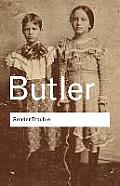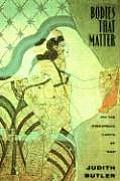I guess I'll link them to Powell's because it is Indie and to Amazon.
In Property, a
book by the excellent writer Valerie Martin (The Confessions of Edward Day,
Italian Fever), the author describes the state of women as possessions at
the time of slavery in the United States. She offers an original slant in her
dive into a white female slave-owner’s psyche and situation as this woman,
Manon, tells her life story, interweaving it with her relationships with her
black female slave, Sarah. While Manon tries to release herself from the greedy
possession of her husband’s hold, she is unaware of repeating the pattern of
ownership and property in her own connection with Sarah. She goes as far as seeing
Sarah as her enemy due to the abusive sexual behavior of her own husband,
although neither she nor the slave have any power to confront and resist him.
The author doesn't give us any easy solutions, only a view of the meaning of
human property and how it destroys lives. We learn about both women only
through her eyes, and the gap between what she tells and what the reader can
read out of it is more meaningful than the related facts.
The book is slim, well-written and fast going.
Property on AmazonBodies That Matter: On the Discursive Limits of "Sex" by Judith Butler
In Bodies that Matter
Judith Butler replies to the criticism of her earlier book Gender Trouble. She
argues with the feminist thinkers who see the body as matter--a material body
with a sexual specification. According to her the body does not exist beyond a
cultural construction. It serves as a site for the feminist theory
independently of such a pre-discursive definition. In her introduction she
explains:
For surely bodies live
and die; eat and sleep; feel pain, pleasure; endure illness and violence; and
these “facts,” one might skeptically proclaim, cannot be dismissed as mere
construction. […] But their irrefutability in no way implies what it might mean
to affirm them and through what discursive means. Moreover, why is it that what
is constructed is understood as an artificial and dispensable character? (xi).
The construction of
bodies is a constitutive constraint, and bodies are understood through it. She
states again that both body and gender are parts of discourse. The only way to
reach the matter beyond discourse is through discourse itself. After all, it is
the discourse that defines the body as a matter existing beyond it. Inspired by
Foucault, she contends that discourse is based on power relations and
manipulated by those who control the sources of knowledge. The definition of
what is natural is manipulated as well. Henceforth, the materiality of the body
is discursive. The material body, its boundaries and its sexuality, materialize
through the repetition of policing norms. The norms attribute meaning to it.
Even the body limits are the product of social codes according to which certain
practices are allowed and others are not.Butler goes back to the concept of
performativity and confirms that repeatedly performed acts normalize an
attributed gender, as well as marks of race, class and sexuality. Discourse
defines certain bodies as natural, thus marginalizing others. This alludes to
the fact that the accepted body does not owe it to its biological
characteristics but to cultural signs. Based on Luce Iragaray’s Lacanian
analysis, Butler also investigates the political coherence for which certain
bodies are not legitimized. Through her own and Iragaray’s analysis of Platos’
work Timaeus, she reaches the conclusion that the marginalized bodies are
related to homosexuality. She concludes that deconstruction cannot be based on
already constituted references. Only a truly open
debate can bring change.
Bodies that Matter at Powell`sAt Amazon

Gender Trouble: Feminism and the Subversion of Identity
by Judith Butler has been one of the most cited and influential text in gender studies since its publication in 1990. Butler introduces problems resulting from the identification of gender with the biological difference between men and women, analyses the power relations in the basis of the concept of gender, describes methods of controls and suggests that deconstruction can lead to change.
According to the scholar, gender-based classification is constructed by discourse with the objective of recreating hegemonic paradigms and perpetuating current power relations. Former feminists have noted the importance of exposing the interests behind conventions. Butler goes further: defining Women and Men as universal categories disguises the interest it serves.
She writes, “Signification is not a founding act, but rather a regulated process of repetition that both conceals itself and enforces its rules precisely through the production of substantializing effects” (185). She states that analysis (or deconstruction) provides tools for the socially oppressed to fight against the existing social order.
In the author’s view, the category of Women from which the feminist struggle arises is different from the political, hierarchical myth based on biology. The assumption that there is a pre-discursive body with a pre-determined sexuality and gender sustains oppression against subjugated and marginalized subjects. Disconnected from the body, she suggests, gender can include more than two versions.
In the first chapter, titled “Subjects of Sex, Gender, Desire”, Butler introduces woman as a subject of feminism and distinguishes between sex and gender. In the second she discusses heterosexuality within psychoanalytical and structuralist theories. Lastly, “Subversive bodily acts” deals with the category of biological sex and ends with Butler’s theory of gender-related performance and performativity.




No comments:
Post a Comment